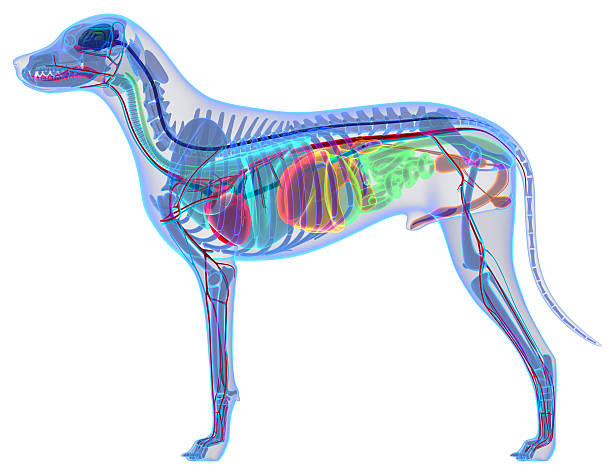Is Creatine Monohydrate Safe for Dogs? A Look at Diet and Nutrition
Is Creatine Safe for Dogs? The Truth About Creatine in Your Dog's Diet
Canine owners are always searching for ways to enhance their pets' health, energy, and overall quality of life.
Creatine, a popular supplement for humans, raises questions about its safety and efficacy for dogs.
This blog explores whether creatine is safe for dogs, its potential benefits, risks, and how it fits into a dog's diet.
By the end, you'll know if creatine supplementation is right for your canine companion.

Outline
- What is Creatine and How Does It Work?
- Is Creatine Naturally Found in Dogs?
- Potential Benefits of Creatine for Dogs
- Can Creatine Improve Muscle Energy in Dogs?
- Is Creatine Safe for Dogs?
- Side Effects of Creatine Supplementation in Dogs
- How to Introduce Creatine into Your Dog's Diet
- How Much Creatine Can Dogs Safely Take?
- What Studies Say About Creatine for Canines
- Should You Ask Your Vet About Creatine for Your Pet?

1. What is Creatine and How Does It Work?
Creatine is a naturally occurring compound found in meat and produced in the body. It plays a critical role in energy production by supporting the synthesis of ATP (adenosine triphosphate), which fuels muscles during high-intensity activities.
This process makes creatine a popular supplement among humans for muscle building and physical performance.
To understand more about how creatine functions in both humans and animals, check out How Does Creatine Work for an in-depth explanation.
In dogs, creatine works similarly by aiding energy transfer in skeletal muscles and improving muscle endurance.
Its chemical structure enables it to replenish ATP quickly, which is crucial during exercise or recovery.
2. Is Creatine Naturally Found in Dogs?
Yes, creatine is naturally present in dogs. It is stored in their skeletal muscles, where it helps with muscle energy during movement and exercise.
Dogs synthesize small amounts of creatine in their liver, kidneys, and pancreas using amino acids like arginine, glycine, and methionine.
Dogs consuming diets rich in animal products like beef, chicken, and fish naturally obtain creatine.
However, commercial dog foods may contain limited amounts due to processing.

3. Potential Benefits of Creatine for Dogs
Creatine might help dogs maintain muscle mass, improve endurance, and support recovery after exercise. For aging pets, creatine could reduce muscle atrophy and support mobility.
For insights into how creatine helps recovery and muscle repair, explore Creatine Recovery.
Creatine supplementation may also be beneficial for working dogs, such as police or hunting breeds, by enhancing their physical performance during high-intensity tasks.
Additionally, creatine may assist in recovery after injury by improving muscle energy and aiding repair processes.
4. Can Creatine Improve Muscle Energy in Dogs?
Muscle energy in dogs relies heavily on ATP. Creatine helps store and replenish ATP, ensuring consistent energy supply during activities like running or jumping.
This makes creatine especially useful for active or athletic breeds that require sustained bursts of energy.
Creatine might also prove helpful in maintaining muscle energy in senior dogs, whose natural creatine levels decline with age. This can enhance their overall quality of life and physical health.
For more on the forms and types of creatine, check out A Guide to Supplement Forms.

5. Is Creatine Safe for Dogs?
Studies and anecdotal evidence suggest that creatine is generally safe for dogs when used in appropriate amounts.
However, safety largely depends on the dosage and the individual dog's health status.
Creatine is naturally found in raw and commercial dog foods, but excessive supplementation can cause potential health issues. Always consult a vet before adding any supplement to your pet’s diet.
For a deeper dive into potential side effects of creatine, visit Creatine Supplementation Side Effects.
6. Side Effects of Creatine Supplementation in Dogs
While creatine is safe for dogs in small amounts, excessive supplementation can lead to side effects.
Potential symptoms include gastrointestinal upset, dehydration, or kidney strain in dogs with pre-existing conditions.
If your dog experiences symptoms like diarrhea, lethargy, or excessive thirst after taking creatine, stop supplementation and consult a vet immediately.
Maintaining a balance is key to avoiding adverse effects.
7. How to Introduce Creatine into Your Dog's Diet
When introducing creatine to your dog's diet, start with small amounts to monitor their response. Mix the supplement with their regular food to ensure they consume it fully.
Ensure the creatine supplement is free from additives or ingredients that might harm your pet, such as artificial flavors or fillers. Opt for pure creatine monohydrate, a widely studied and safe form of creatine.
If you’re curious about different forms of creatine, explore Creatine Monohydrate Gummies for more details.

8. How Much Creatine Can Dogs Safely Take?
The safe amount of creatine for dogs depends on their size, breed, and activity level.
For most dogs, a dose of 0.05-0.1 grams per kilogram of body weight is sufficient.
For example, a 20-kilogram dog might require 1-2 grams of creatine daily.
Avoid giving excessive amounts, as it could lead to health issues. Always consult your vet to determine the appropriate dosage for your dog.
9. What Studies Say About Creatine for Canines
Few studies have examined creatine supplementation in dogs. However, research in other animals and humans shows promising results for muscle energy and recovery.
One study on creatine and animal performance noted improved endurance and energy levels in dogs given small doses.
While more research is needed, these findings support creatine’s potential benefits for canines.

10. Should You Ask Your Vet About Creatine for Your Pet?
Yes, consulting your vet is essential before starting creatine supplementation for your dog. Your vet can assess your dog's health, diet, and activity level to determine if creatine is a suitable addition.
A professional opinion ensures that creatine supplementation benefits your dog without causing unnecessary risks or side effects.
Key Points to Remember
- Creatine is a natural compound found in dogs and in meat-based diets.
- Creatine supports muscle energy, endurance, and recovery.
- Creatine might help active or aging dogs maintain physical performance.
- Consult a vet before adding creatine to your dog’s diet.
- Start with small doses and monitor for any side effects.
By understanding the role of creatine in your dog’s diet, you can make informed decisions about supplementation.
Always prioritize your pet’s health and well-being with a balanced approach to nutrition.
For More Training Advice + Diet and Lifestyle visit us Combat Creatine
PS: Make sure you check out the rest of our Creatine Guides:
Creatine
When to Take Creatine: Pre vs Post Workout
Is Creatine Safe for Teen Athletes
Can You Take Creatine for Weight LossShould I Take Creatine on Rest Days or Off Days
Can You Take Creatine Before Bed
Can You Take Creatine Without Working Out?Can You Mix Collagen and Creatine in One Drink?What Happens When You Stop Taking Creatine
The Impact of Alcohol and Creatine












